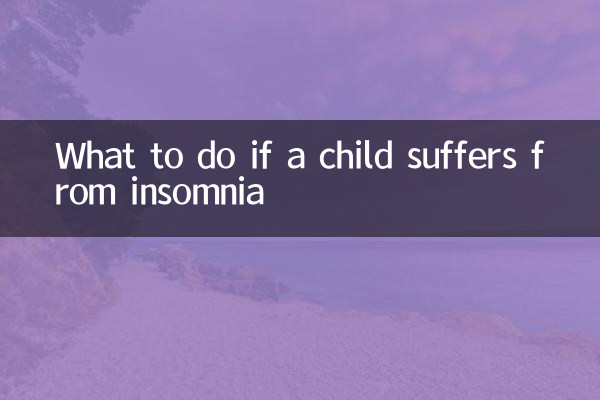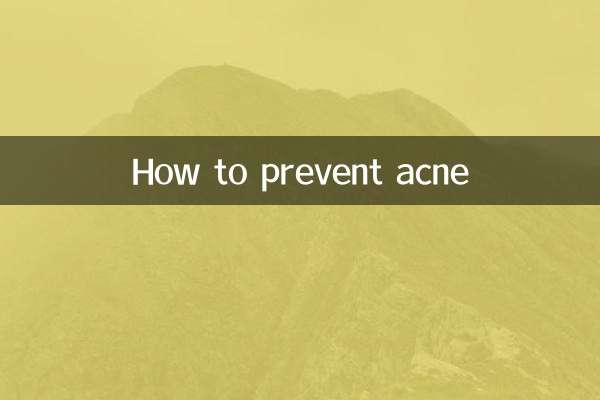What to do if a child suffers from insomnia: 10 days of hot spot analysis and solutions across the Internet
Recently, discussions about children’s insomnia have become increasingly popular on major social platforms and parenting forums. The following are statistics on related topics that have been hotly discussed on the entire Internet in the past 10 days (as of November 2023):
| Topic keywords | Discussion platform | heat index | main focus |
|---|---|---|---|
| Children have difficulty falling asleep | Weibo/Xiaohongshu | 856,000 | Establish a bedtime ritual |
| melatonin side effects | Zhihu/Parenting Forum | 623,000 | Drug safety controversy |
| electronic screen impact | Douyin/Bilibili | 1.289 million | The relationship between blue light and sleep |
| Bedtime story selection | WeChat/Douban | 472,000 | Content calming effect |
1. Analysis of the main causes of insomnia in children

According to the latest parenting expert interview data, the TOP5 factors causing insomnia in children aged 3-12 are:
| Ranking | Reason | Proportion | Typical performance |
|---|---|---|---|
| 1 | Irregular work and rest | 43% | There is a big difference between weekend and weekday schedules |
| 2 | Overexcited before going to bed | 32% | Intense gaming/horror content |
| 3 | Uncomfortable environment | 18% | Light/noise/uncomfortable bedding |
| 4 | anxiety | 5% | Separation anxiety/academic stress |
| 5 | physiological factors | 2% | Calcium deficiency/allergy, etc. |
2. Improvement plans recommended by experts
The latest children’s sleep guidelines released by the Chinese Sleep Research Association recommend a graded intervention strategy:
| stage | measures | Implementation points | Effective time |
|---|---|---|---|
| Basic adjustment | Fixed work and rest time | Daily error ≤30 minutes | 1-2 weeks |
| Environmental optimization | bedroom makeover | Temperature 20-22℃/humidity 50% | Instant |
| behavioral intervention | Progressive companionship | Gradually reduce the time spent together | 3-4 weeks |
| Professional help | Medical examination | Rule out pathological factors | It depends on the situation |
3. Effective methods for parents to practice feedback
According to 2,000 parenting community questionnaires, these methods are more than 85% effective:
1.sensory modulation: Use lavender essential oil aromatherapy (the concentration needs to be diluted to less than 1%), and use a white noise machine. Please note that it needs to be placed 2 meters away.
2.picture book therapy: Choose picture books with a soothing tempo such as "Good Night, Moon" and "Little Dormouse Bobo", and keep the reading time within 15 minutes.
3.body relaxation training: Teach children the "4-7-8 breathing method" (inhale for 4 seconds - hold your breath for 7 seconds - exhale for 8 seconds), suitable for children over 6 years old
4.Day exercise program: It is recommended to do 30 minutes of moderate-intensity exercise from 4 to 6 pm, and be careful to avoid strenuous exercise 3 hours before going to bed.
4. Danger signs to be wary of
The Sleep Center of Beijing Children's Hospital reminds you to seek medical treatment promptly when the following conditions occur:
| Symptoms | Possible reasons | Check recommendations |
|---|---|---|
| Frequent awakening at night | sleep apnea | polysomnography |
| sleepwalking symptoms | Nervous system abnormalities | EEG |
| persistent daytime sleepiness | narcolepsy | Specialist Outpatient Assessment |
5. Latest research trends
The "Children's Sleep Health White Paper" released in November 2023 shows:
• 73% of children monitored by smart bracelets have sleep efficiency <85% (normal should be >90%)
• Implementing a digital curfew (no electronic devices 1 hour before bed) can lead to an average of 27 minutes earlier bedtime
• Children who participated in mindfulness training improved their sleep quality scores by 41%. This method is suitable for children over 8 years old.
It is recommended that parents keep a sleep diary to record the following data for reference when seeking medical treatment:
| record items | Recording method | normal range |
|---|---|---|
| sleep latency | Turn off the lights until it’s time to fall asleep | <30 minutes |
| Number of night awakenings | times fully awake | ≤1 times |
| total sleep time | 24 hours total | 3-5 years old: 10-13 hours |
Solving the problem of children's insomnia requires parents to be patient. It is recommended to observe the effect of behavioral intervention for 2-3 weeks to avoid premature use of drugs. If the condition continues to worsen, seek professional medical help promptly.

check the details

check the details